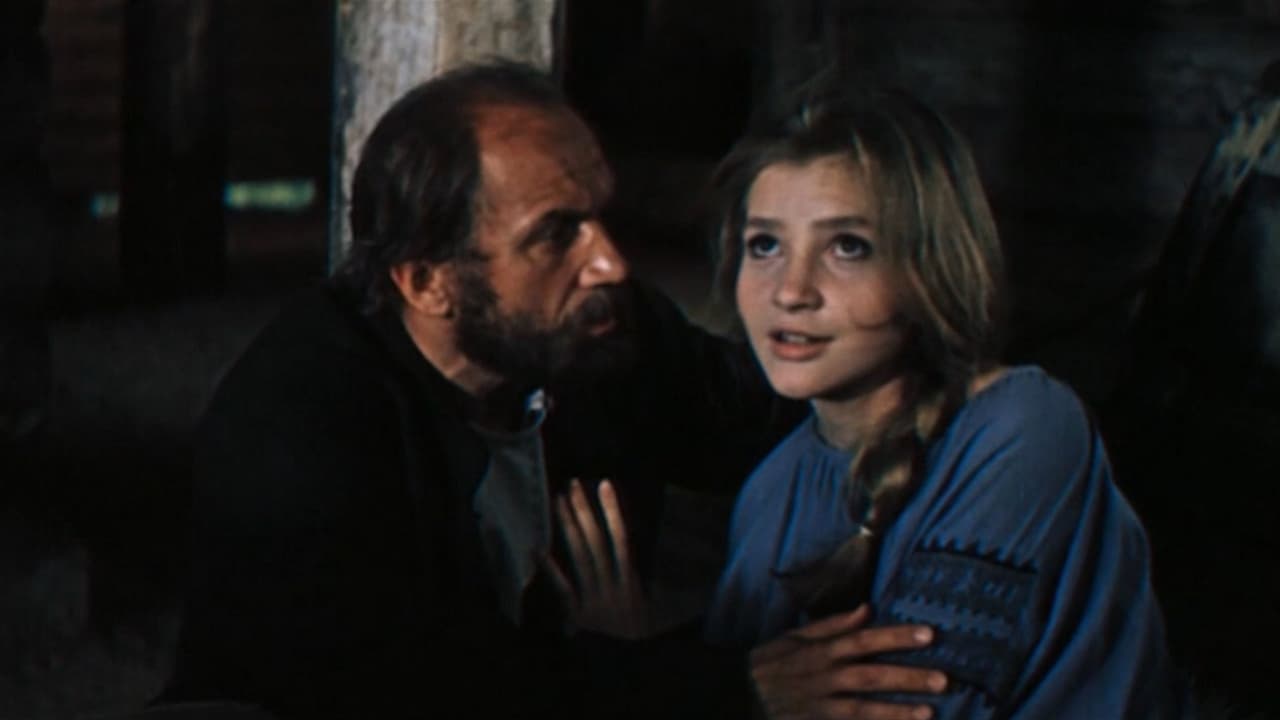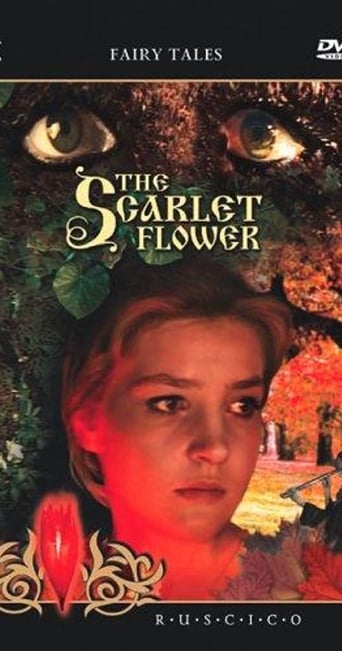SparkMore
n my opinion it was a great movie with some interesting elements, even though having some plot holes and the ending probably was just too messy and crammed together, but still fun to watch and not your casual movie that is similar to all other ones.
Huievest
Instead, you get a movie that's enjoyable enough, but leaves you feeling like it could have been much, much more.
Humbersi
The first must-see film of the year.
Kodie Bird
True to its essence, the characters remain on the same line and manage to entertain the viewer, each highlighting their own distinctive qualities or touches.
morrison-dylan-fan
With my 31st birthday coming up on February 9th I started gathering up movies that I've been saving to view. Recently being in the mood to see a Fantasy film,I found fellow IMDber Red-Barracuda's review of a title from the Soviet Union to be very interesting, which led to me pulling a scarlet flower out of the ground.The plot:Before going to work at the market,a merchant asks his three daughters if there is anything that they want. Asked to get a golden tiara and a crystal mirror by his first two,the Merchant is taken aback ,when his third daughter asks him to get a scarlet flower she has been dreaming of! Crossing the sea to work,the merchant is shocked to spot the flower and pulls it out. Awakening with a scream,a beast appears and tells the merchant that due to him killing the rare flower, he must spend the rest of his life there...View on the film:Weaving the fairy tale in a fittingly swift 65 minutes, director Irina Povolotskaya, cinematographer Aleksandr Antipenko and special effects duo Leonid Akimov & L. Miatshin conjure up outstanding practical effects,from the glowing,red ruby hue of the scarlet flower,to the lizard-style monster having a lush green appearance, that seamlessly blends into the background like a chameleon. Pulling the Beauty and the Beast outline into a new direction, Povolotskaya gives the rotting mansion a reflected fading silver appearance,which is neatly balanced by the warm, rustic tracking shots Povolotskaya uses to follow the merchant attempting to fulfill his daughters requests.Adapting Sergey Aksakov's own 1858 interpretation of Beauty and the Beast,the screenplay by Natalya Ryazantseva (a woman writer working with a woman director-a real rarity in the USSR) marvellously keeps the Gothic element of Beauty via the reclusive state of the Beast,but takes the Fantasy in its own direction with a (somewhat) Soviet Union message of the Merchant being a hard-working soul,who is prepared to give up his life in order to keep his daughters happy. Facing demands from his daughter and the Beast, Lev Durov gives a terrific, worn-down performance as the humble Merchant,whose life is changed when he pulls out the scarlet flower.
Red-Barracuda
The Scarlet Flower is a film from the Soviet Union that was based on a Russian fairy tale which was itself reminiscent of 'Beauty and the Beast'. In it a man goes on a trip and promises to return with gifts for his three daughters, the least materialistic of which asks for a scarlet Flower she saw in a dream. Her father finds the flower but it is the property of a fearsome forest creature, who gives him it but with conditions attached.A good number of the very best fantasy films based on fairy tales originate from Central and Eastern Europe and The Scarlet Flower is yet another example of this. It's probably because these stories so often emerged from this part of the world that these cultures often produced film equivalents which understood the source material so much better. Like other fascinating east European fantasies such as The Singing Ringing Tree (1957) from East Germany or Valerie and Her Week of Wonders (1970) from Czechoslovakia, this one is also another atmospheric and visually beautiful bit of work which combines the enchanting with the dark and macabre. The forest, the waterfall and the crumbling woodland Gothic house all make for lovely locations; with the unusual characters like the old man, the witch and the beast being interesting fairy tale characters who add a further dimension of mystery and ambiance to proceedings. The leafy exteriors and interiors possess a dream-like feel, while the colour tints used only accentuate this further. Overall, I thought this was another example that shows the instinctive feel the East Europeans have for this type of unusual fantastical material.
TheLittleSongbird
The 1952 animated version by Soyuzmultfilm personally is superior, but both do justice to such a great story. The special effects here are not mind-blowing, sometimes a little crude. The film is very fairy-tale-like in its detail and atmosphere, it is lovely to look at and the colours are appropriately moody with striking colour tinges. The music is both ethereal and haunting, while the writing is never too sophisticated or childish, if anything it's gentle with a good sense of mood conveyed. The story is simple and leisurely and for the better, fairy-tales are better adapted like that in my opinion, contrary to what's been said before there is a sense of mystery and magic here though more convincing in the 1952 animated version. The ending is very heartfelt. The acting is noble, generally natural and not too theatrical, while the direction is solid and doesn't allow the storytelling to get too limp. In conclusion, not quite as good as the 1952 animation but lovely still. 8/10 Bethany Cox
Hazel Freeman
A film based on a variant of the fable of the beauty and the beast, it never really grips the imagination, with weak use of special effects and lame characterisations.The colour is poor and the sense of being in the depths of the forest, prey to spirits and magic spells, is never really captured.

